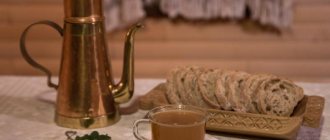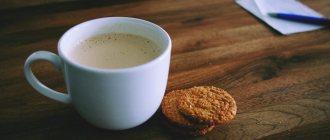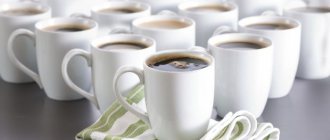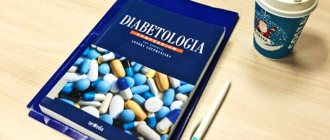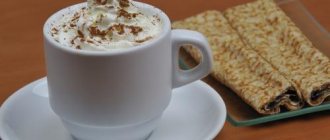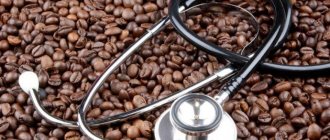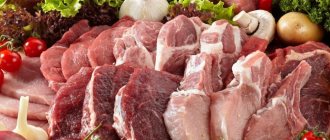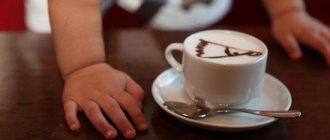There are many indications for why a doctor sends you to donate blood: routine examinations, before operations, during pregnancy, and others. There are people who independently check blood readings in independent laboratories without prescriptions. This procedure must be approached responsibly. Violation of certain rules associated with blood collection may lead to distorted results and possible incorrect subsequent actions.
A special category of people who cannot imagine their morning without an aromatic coffee drink should listen especially carefully to the doctor’s recommendations. There are some laboratory tests in which a small amount of caffeine will not affect the values. In this case, it is important to maintain a time interval after which you can go to the laboratory after drinking coffee. But medical professionals, when asked by coffee lovers whether it is possible to drink coffee before donating blood, more often give a negative answer and explain in detail how and why the substances contained in the aromatic drink affect the result.
A coffee drink in which sugar is also added immediately leads to disruptions in the natural rhythms in the body and imbalance. There is no need to rely on the reliability of the results. And no one wants to get into a situation where a doctor diagnoses a disease that does not exist in a person or does not notice the onset of a disease. And if you have to take a blood sugar test, the sweet and aromatic coffee you drank the day before will greatly distort the true situation. Hormones are also highly affected by caffeine, which can change levels overnight.
Before blood collection
Water seems to be the safest substance, and a person cannot imagine his life without it.
But some substances from the liquid fill the blood in the body. Doctors believe that for 2-3 days, whether for donation or tests, it is necessary to take only water from liquids. The water should be clean, and ideally filtered.
Dyes and flavors can have a bad effect on the composition of the blood.
Sweet carbonated waters are also out of the question, since such a liquid will increase the glucose level in the body.
Tea and coffee seem to be a familiar part of our diet. But you need to be wary of these drinks.
It is allowed to drink a cup of tea or coffee at breakfast on the day of visiting the clinic or transfusion point, but it is important that there is no sugar in them, and that it is natural brewed tea or coffee without additives, preferably insoluble (ground or beans).
Because in the case of bagged tea or granulated coffee, it is difficult to be sure that there are no chemical additives inside that can adversely affect blood components.
Can I drink coffee before becoming a donor? Coffee contains more than 2,000 elements, many of which have not yet been studied, so they will affect the composition of the blood. Don't drink coffee!
The effect of coffee on biochemistry
Despite the fact that coffee does not contain elements that directly change the biochemistry of the blood, it has a complex effect on the body's systems, which can lead to altered indicators. This invigorating drink, in addition to caffeine, contains more than 200 components, and the effect of all of them on the body has not been fully studied. In any case, to make a correct diagnosis, it is easier for a doctor to work with “clean” material.
Blood test is the most informative and accurate study
By the way, decaffeinated coffee has the same effect on biochemistry. Therefore, such drinks are also not desirable in almost all cases. Drinking tea before donating blood is unacceptable for the same reasons, because it also has a very complex set of components.
Nutrition
Let's start with the most important thing: every person definitely eats several times a day, but before taking a test or donating blood, it is necessary to protect the composition from the negative effects of harmful foods.
Doctors believe that for several days before collection it is necessary to change your diet to the following list of products:
- Vegetables;
- Fruits;
- Porridges cooked in water;
- Boiled fish and meat;
- Bread.
The task is to collect the maximum amount of vitamins in the body and recharge with energy, since donation takes a lot of energy and the maximum amount of resources will be required to quickly restore the body.
You cannot skip breakfast on the day of delivery. Need a snack:
- Bread;
- Oatmeal cookies;
- Biscuits.
The transfusion station will provide you with free food. After the test, you need to eat a hearty meal so that the body can easily activate recovery processes.
If you take it for testing, nothing changes. There is one controversy that doctors have caused. Some say that the analysis must be carried out on an empty stomach, while others assure that the permissible interval between the last meal and the procedure starts at 3 hours.
In fact, a light breakfast on the day of blood sampling is possible and will not harm its composition.
Is it possible to drink coffee before donating blood from a vein?
Drinking coffee before taking tests is often prohibited. This is due to the fact that the laboratory will not be able to correctly determine the level of platelets, protein, bilirubin and other substances. You should play it safe and refuse it 12 hours before blood sampling.
But when determining the Rh factor, you are allowed to eat and drink whatever you want.
For sugar or biochemistry
When taking blood from a vein for sugar, it is extremely important to give up foods containing carbohydrates and glucose in the evening. Not only coffee is prohibited, but also a number of other products:
- honey;
- bananas;
- grape;
- sweets;
- baking
You can drink clean water eight hours before the procedure. Drinking espresso in the morning will inevitably lead to an increase in sugar levels. Due to this, the diagnosis of “diabetes mellitus” is erroneously made.
When conducting a biochemical study, you must also donate blood on an empty stomach. Drinks containing caffeine are allowed twelve hours before collection.
For hormones
Drinking espresso is prohibited. Blood is taken for hormones to determine the condition of the adrenal glands, thyroid gland, reproductive system, and caffeine activates their activity. Accordingly, it will not be possible to obtain reliable results. In the morning, only plain water is allowed.
Even when testing for hCG, you should refuse the stimulating drink, especially since pregnant women are not recommended to drink it. Espresso provokes surges in blood pressure and overstimulation of the nervous system. The load on the kidneys and liver increases significantly.
For uric acid in the blood
Often, coffee drinks, especially when consumed on an empty stomach, act as a diuretic. If you drink even a small cup of aromatic liquid, the activity of the urinary system and kidneys is activated. A blood sample for uric acid is taken to determine the condition of these paired organs. Accordingly, before hyperuricemia, drinking liquids containing caffeine is strictly prohibited.
Donation
The vast majority of tests are done on an empty stomach, but donation is a completely different matter. Here diagnostic measures are carried out in advance.
The donor must have breakfast before the procedure. True, food should be light and not burden the stomach.
Drinking coffee before donating blood is not strictly prohibited, but it is not recommended. If you cannot resist the temptation, preference should be given to a natural product. Soluble contains a lot of chemicals. They are completely unnecessary for a person who is receiving a transfusion of donor material.
Donating blood for infections
When conducting research for AIDS, HIV, syphilis and other infections, there are no dietary restrictions. Antibodies formed during infection are quite stable. They can be easily determined in laboratory conditions. Caffeine has no effect on viruses. True, there have been cases recorded when, after drinking an Americano or espresso, a false positive result was obtained. The procedure had to be repeated.
Is alcohol allowed or prohibited?
If you drink alcohol, there are 3 types of blood donation:
- Donation – you must stop drinking alcohol 72 hours before donation. At the transfusion point, the potential donor will be asked whether he took alcohol during the period indicated above. Since a questionnaire is filled out at these points, by deception you can bring problems to the person who will receive the transfusion, or to yourself (punishable by law).
- Biochemical analysis is the most complete and wide range of indicators. Drinking alcohol before him is prohibited. Otherwise alcohol:
- May have varying effects on blood composition;
- Will greatly reduce the amount of sugar in it;
- The cells of the body begin to poorly absorb oxygen;
- Feeling worse.
- General blood test - a smaller range of parameters is considered, but alcohol intake is also prohibited. Alcohol can cause changes:
- Negative effect on red blood cells;
- Increased cholesterol;
- Decreased hemoglobin levels;
- Lipid metabolism in the liver slows down, and this indicator is assessed before surgery.
There are rare cases when doctors allow you to take a small dose of alcohol before analyzing blood components, but the doctor will warn you about this personally.
Donating blood for infections
As a rule, when donating blood for RW (RV, syphilis) and HIV (AIDS), as well as when identifying other infections, it is recommended to come on an empty stomach. This is a loose recommendation, and many people believe that caffeine has no effect on the presence or absence of viruses. On the forums they write that during pregnancy, many people took tests after drinking coffee, and even milk and sugar, and everything was fine.
However, sometimes caffeine, by changing the composition of the blood, can slightly affect test results, making them false positive. If this happens, don’t worry, and retake it again, this time on an empty stomach. The situation is rare, but it does happen.
Effect of drugs
Medications are included in a separate column when taking tests and donating.
This problem is that when taking alcohol, the patient may know which blood components will change. In the case of medications, changes will be the most unpredictable .
If someone regularly takes medications for illnesses, then in fact they will not be allowed to donate.
The drugs are not intended for treatment, it is better to simply stop taking them a few days before the test, and then resume taking them.
To get tested, it is better to visit a doctor who can explain which medications can be taken and which ones should be avoided.
If we are talking about giving up medications, without which the patient simply cannot maintain a normal state, then the doctor may advise taking them several hours before and after the donation, so as not to cause harm or radically change the composition of the blood.
A separate list can take into account medications taken by pregnant women. Medicines may contain hormones and cause various changes in their levels in the blood.
These drugs have a long-term effect on the body, therefore pregnant women are closely monitored, which will temporarily analyze changes in blood composition.
When can you drink coffee?
Before taking a blood test, you are allowed to drink coffee later than 10 hours before the scheduled time of collection. Typically, such procedures are carried out early in the morning, so you can safely allow yourself to drink a cup of your favorite drink in the evening. And then - at the time indicated by the doctors after donating the blood material (about 2 hours after the procedure).
There are no restrictions on the consumption of the drink when conducting the following studies:
- determination of blood clotting rate;
- identification of autoimmune pathologies;
- determination of hemoglobin level;
- determination of electrolyte levels;
- diagnosis of infectious mononucleosis.
If the material is taken as planned, then the doctor’s instructions must be strictly followed (so as not to donate blood again). And if it’s an emergency, then the amount of food eaten and drunk the day before doesn’t really matter.
You should approach taking tests with all responsibility. This will help significantly save time: you won’t have to carry out the procedure twice or three times if you get incorrect results. In addition, an accurate diagnosis can be made faster, which means treatment can begin faster.
Conclusions:
- Drinking coffee before donating blood is undesirable, and sometimes it is strictly prohibited.
- If the doctor has warned you about the prohibition, you should not drink coffee even if you have a finger prick blood test. If there was no warning, you can drink it, but preferably without sugar or full-fat milk.
- When analyzing your blood type and Rh factor, you can drink any drink.
- When taking blood from a vein for biochemistry, sugar, hormones, uric acid, coffee is excluded.
- When testing for infections, it is better not to drink coffee, as sometimes it can affect test results.
- Decaffeinated coffee is still coffee. If regular is not possible, decaf is also not allowed.
Specific types of blood tests
There is a list of tests that must be carried out with strict adherence to the rules: on an empty stomach, no medications and no liquids other than clean water.
This list includes tests for:
- HIV;
- hepatitis B,C;
- hormones;
- syphilis.
If the diagnosis is incorrect, the patient may remain unaware of his real illness for a long time, and because... Most of them do not show any symptoms for a long period of time, then such errors in preparing for tests can lead not only to the development of the disease, but also to death.
Therefore, remember that before donating blood you can drink water, preferably filtered.



